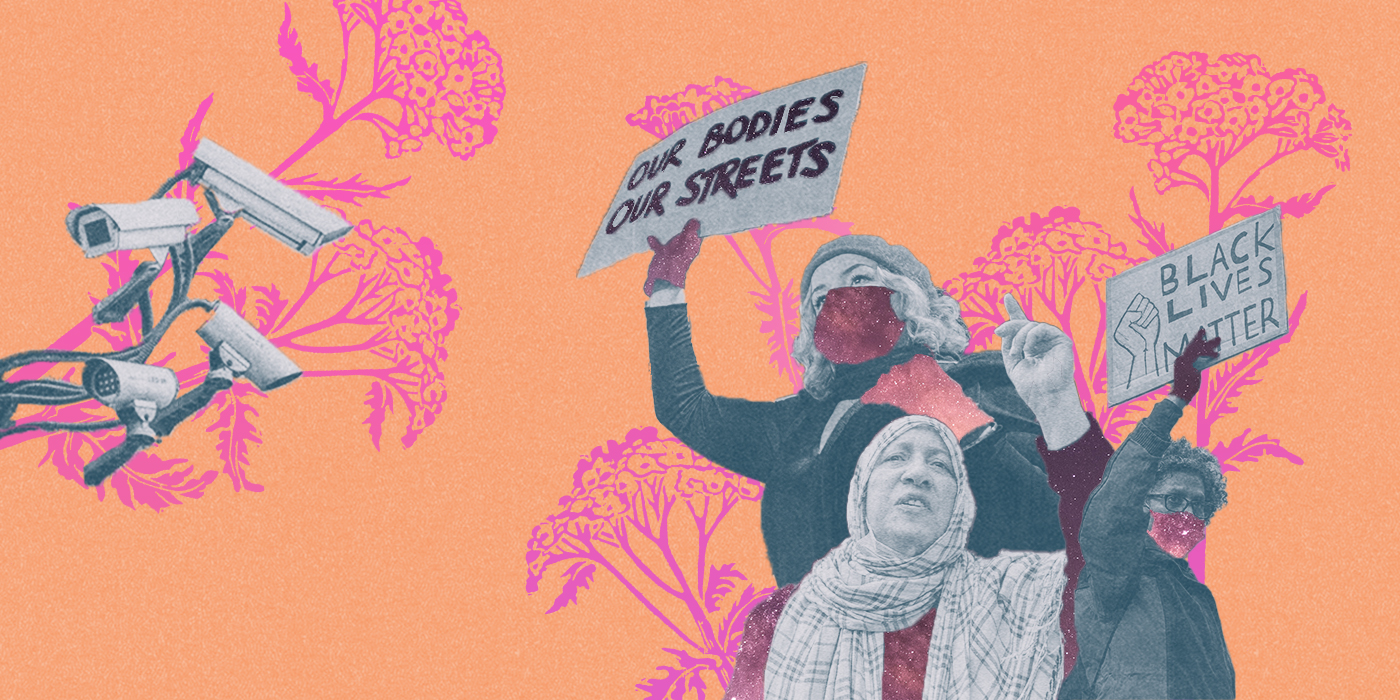An in-person community workshop to unpack the use of new technologies to criminalise dissent and police racialised people in Germany, and share strategies against it
Saturday, 25 November, 10:00 – 18:00 im Aquarium, Skalitzer Straße 6, Berlin
U8 Kottbusser Tor
Surveillance on the street is an everyday reality. We see small police drones hovering above protests or large ones in the Mediterranean against migration. Satellite monitoring is enhancing this governmental “situation awareness”. In the cities, facial or pattern recognition cameras are scanning crowds. Now the police are introducing body cameras on a large scale. Biometric databases are upgraded for searchable facial images, a new European network makes these – plus police investigation files – available in all Schengen states. We also hear stories about welfare fraud algorithms flagging parents, or about youth getting in trouble about social media posts. With the introduction of Artificial Intelligence, these applications should be able to process the mountain of Big Data which authorities are building up. In the same time, efforts by police and secret service to undermine secure, encrypted messaging are increasing.
It is hard to understand the extent to which we are under surveillance by new technologies, how this affects our everyday realities and what this means for organising. How do we make sense of all these developments and how can we grapple with their impact?
The sessions will give participants the opportunity to tell their stories and further their understanding of how police tech impacts them. Together we will look at how new policing technologies reinforce existing oppression, how they create new harms and at organising strategies. We will look at how to turn information into action, who our allies are and what we need to address the issue. Depending on interest, this workshop will include a track on border control technologies, for those organizers who encounter this issue in their solidarity work with people on the move.
This workshop is organised by the Justice, Equity and Technology Table, a European network to confront the impact of data-driven policing on racialised communities, in collaboration with CILIP.
Our workshop will consist of various discussions and activities:
I. Exploring the role of tech in daily criminalisation and examples we encounter in everyday life. We would like to start with an exchange about concerns, experiences and questions when it comes to surveillance and police technology,
II. Present an overview of current examples of police tech and ‘data-driven’ policing, situating these in a broader context and long history of colonial oppression, racialised criminalisation and surveillance,
III. Collaborative analysis by a deep-dive: taking one example of police tech, we will be collectively dissecting what it does, who it targets, who benefits and who is involved in its implementation. We will be using the abolitionist Algorithmic Ecology Mapping tool to support this work,
IV. In the last part we will focus on organising methods to disrupt tech harm. We will exchange and brainstorm organising strategies to build community power to push back against police tech, such as mapping, refusal and digital defence strategies.
